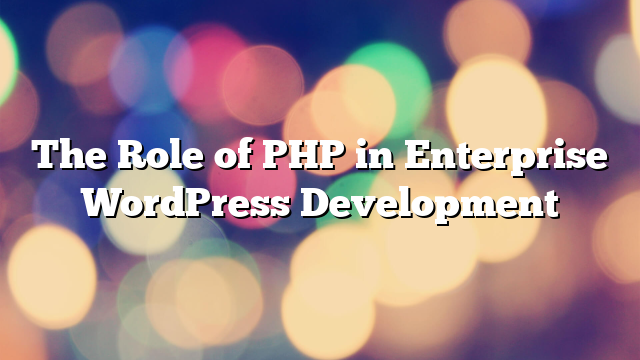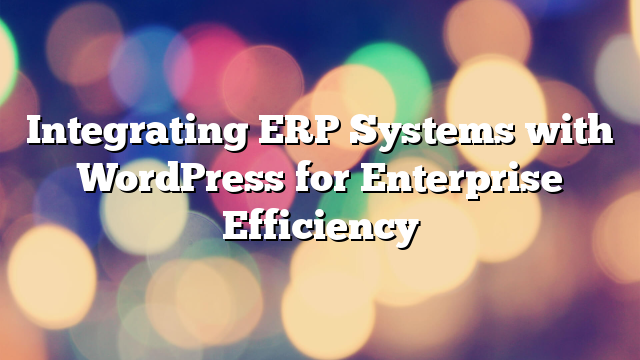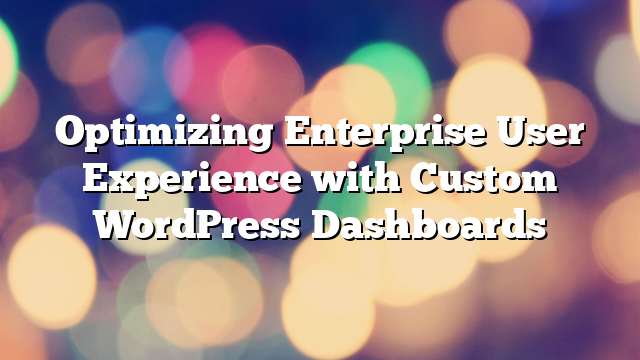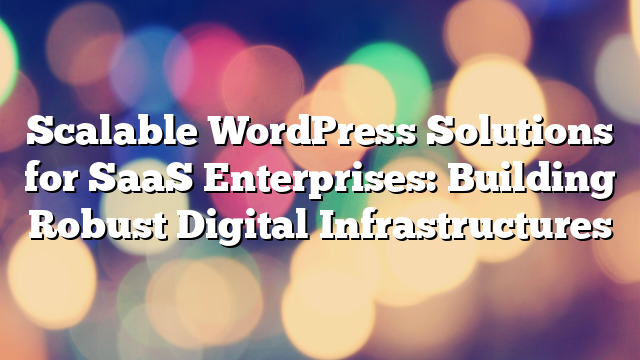The Role of PHP in Enterprise WordPress Development
24.10.2024

As one of the foundational technologies behind WordPress, PHP continues to play a critical role in the success of enterprise-level WordPress development. Despite the rise of JavaScript frameworks and headless architectures, PHP remains central to WordPress’ back-end functionality. In this article, we’ll explore why PHP is essential for enterprise WordPress development and how businesses can leverage it to build robust, scalable solutions.
Why PHP Powers WordPress
PHP is an open-source server-side scripting language that was first developed in the mid-1990s. Since its inception, PHP has evolved to become one of the most popular programming languages on the web. WordPress, the world’s leading content management system (CMS), is built entirely on PHP, using it to process content, interact with the database, and render dynamic pages.
For enterprises, PHP provides the backbone for custom development within WordPress, enabling developers to build features and integrations that enhance the platform’s core functionality. With every version update, PHP continues to offer improvements in performance, security, and development capabilities, making it the go-to language for enterprise-grade WordPress solutions.
The Importance of PHP in WordPress Customization
One of the key reasons why PHP is so integral to WordPress development is its flexibility. Enterprises often need to customize WordPress to meet specific business requirements, and PHP makes this possible. Through custom themes, plugins, and functions, developers can modify virtually every aspect of WordPress to create tailored solutions that align with business goals.
Key customization capabilities include:
- Custom Themes: PHP allows developers to build custom WordPress themes from scratch, offering full control over the design and functionality of a site. This is especially valuable for enterprises with unique branding requirements or those seeking highly interactive user interfaces.
- Custom Plugins: Enterprises often require unique features not available in out-of-the-box plugins. With PHP, developers can create custom plugins that integrate with third-party services, extend WordPress functionality, or add entirely new features to the platform.
- Custom Functions: Through the functions.php file, developers can create site-specific functionality using PHP. Whether it’s modifying how content is displayed, managing user roles, or automating tasks, PHP enables the creation of advanced functionality tailored to the enterprise’s needs.
PHP and WordPress Performance Optimization
For enterprises, website performance is crucial, especially when managing high traffic volumes. PHP plays an essential role in optimizing WordPress for speed and scalability. With each major PHP version, performance improvements make websites load faster and handle more concurrent users without compromising on stability.
Enterprises that stay up to date with the latest PHP versions can benefit from:
- Improved Speed: The release of PHP 7 marked a significant improvement in processing speed, making WordPress sites run up to twice as fast compared to previous versions. With subsequent releases, PHP has continued to enhance performance, helping enterprises deliver faster user experiences.
- Better Memory Management: PHP updates include better memory usage, which is critical for handling complex queries and data processing. This results in lower resource consumption and more efficient server operations, particularly beneficial for enterprises with large-scale websites.
- Enhanced Error Handling: PHP 7 introduced better error handling, allowing developers to catch and address issues more effectively, leading to fewer site crashes and more reliable performance.
PHP Security for Enterprise WordPress Sites
Security is a top priority for enterprises, and PHP plays a crucial role in securing WordPress websites. While WordPress core is inherently secure, vulnerabilities can arise if the code is not properly maintained. PHP provides the foundation for securing WordPress by enabling the implementation of best practices and security features.
Some of the key ways PHP contributes to WordPress security include:
- Input Validation and Sanitization: PHP allows developers to validate and sanitize user inputs to prevent common vulnerabilities such as SQL injection, cross-site scripting (XSS), and cross-site request forgery (CSRF). By ensuring that only safe data is processed by the site, enterprises can protect against malicious attacks.
- Custom Security Plugins: PHP enables the development of custom security plugins tailored to an enterprise’s specific security needs. These plugins can offer enhanced protection, such as two-factor authentication (2FA), advanced firewalls, and brute-force attack prevention.
- Regular PHP Updates: Enterprises that keep their PHP versions updated benefit from the latest security patches and fixes, ensuring that their WordPress sites remain protected from newly discovered vulnerabilities.
Scalability with PHP in Enterprise WordPress
As enterprises grow, their websites must be able to handle increasing traffic and data without slowing down or crashing. PHP’s scalability makes it a perfect fit for enterprise WordPress websites that need to accommodate high traffic volumes and large amounts of content.
Through techniques such as caching, database optimization, and server-side optimizations, PHP helps enterprises ensure their WordPress sites remain fast and reliable, even as demand grows. Additionally, PHP’s compatibility with various web servers, databases, and cloud environments allows enterprises to scale their infrastructure easily, ensuring their WordPress site can handle future growth.
PHP in Headless WordPress Development
With the rise of headless WordPress architectures, PHP continues to play a crucial role in back-end development. In a headless setup, WordPress acts as a content repository while the front-end is powered by modern JavaScript frameworks like React or Vue.js. Even in this decoupled architecture, PHP handles the content management and API integration within the WordPress back-end.
Enterprises using headless WordPress can rely on PHP to manage content efficiently, process data, and provide seamless API connections. PHP remains the driving force behind the creation, storage, and delivery of content, even as front-end technologies evolve.
Best Practices for PHP in Enterprise WordPress Development
To get the most out of PHP in enterprise WordPress development, it’s important to follow best practices:
- Use the Latest PHP Versions: Keeping your PHP version up to date ensures better performance, security, and compatibility with modern web standards.
- Follow WordPress Coding Standards: Adhering to the official WordPress PHP coding standards helps ensure that your code is maintainable, secure, and compatible with WordPress core updates.
- Optimize Database Queries: Efficient database queries reduce server load and improve site performance, particularly for large enterprise websites with complex content structures.
- Implement Caching: Use PHP-based caching mechanisms like object caching and page caching to enhance performance and reduce the load on the server.
Conclusion
PHP remains an essential component of enterprise WordPress development. Its flexibility, security, and scalability make it the ideal language for customizing WordPress to meet the unique needs of businesses. Whether developing custom themes, optimizing performance, or building secure solutions, PHP enables enterprises to unlock the full potential of WordPress.
If your enterprise is ready to harness the power of PHP for WordPress development, contact the team at AllWebDev for expert solutions tailored to your business needs.



